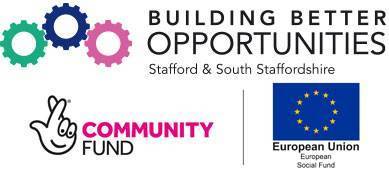How Can A Personal Reference Set You Apart From Competitors? Employment
Today, most jobs require some sort of reference.This will usually take the form of a letter from your previous employer or an employer from an industry related to the one you want to get into.
Sometimes, however, it’s a better idea to supply a personal reference in lieu of a professional one. For example, you might not be able to provide a working reference — either because you are no longer in contact with your former employer or because you don’t have a work history. On the other hand, you might find the reference from your previous employer doesn’t really match your needs.
However, even if you have managed to secure a fantastic job reference from a previous employer, a personal one can be a great way of separating your application from other applicants and making sure you stand out.
In this article, we’ll go through the details surrounding personal references and hopefully leave you with an idea of how to secure a personal reference which puts your best foot forward. Building Better Opportunities is a welfare and employment advice charity based in North Staffordshire
Who Can Provide a Personal Reference?
Generally speaking, anyone who knows you personally can provide a personal reference. However, it’s usually better for your reference to come from someone in authority within the community. The following reference list constitutes the people from whom a personal reference would mean the most:
- Teachers
- Lecturers
- Coaches
- Group or Club Leaders
- Religious Leaders
- Business Connections
- Volunteer Leaders
Who Should a Personal Reference be Addressed To?
A personal reference should be addressed to the hiring manager of the company you’re applying to or the HR official you’ve been in contact with. This is because they should be thought of as a personal communication between your referrer and your hiring manager on your behalf.
What Should Be in a Personal Reference?
A personal reference, at its core, is very similar to most other kinds or personal statements. It should be succinct, yet long enough to give the hiring manager a good idea of what kind of person the applicant is and the kind of relationship they share with the referrer.
Speaking more specifically, there are two pieces of general advice that the writer of a personal statement should consider:
- Attention to detail is best — use actual dates, figures, and the like as much as possible in order to provide as much detail and context as possible.
- The best character references are inspired and tailored to the applicant’s job.
Keeping these things in mind, your personal reference should concentrate on your character and how that character is suited to the job you’re applying for. Specifically, your referrer should look at how you demonstrate the following skills, abilities and qualities.
- Leadership Abilities
- Communication abilities — including your customer relations and external communications skills
- Personal ethics and work ethics
- Personality and creativity
- Problem solving skills
- Any soft skills you possess, including your leadership attributes, patience, and empathy
- Ability to work as part of a team
- Time management
The reference should also cover the entirety of your relationship with the referrer and demonstrate how you’ve grown over the time that you’ve known each other.
Contact Building Better Opportunities Today
Building Better Opportunities is a financial and employment advice charity based in Staffordshire, providing services to Stafford, South Staffordshire and the surrounding area.
For more information about how we can help get you back into work, get in touch with us today. We can provide you with welfare advice, advice about employment tribunals and financial support, and legal advice on a wide range of matters related to employment law.
